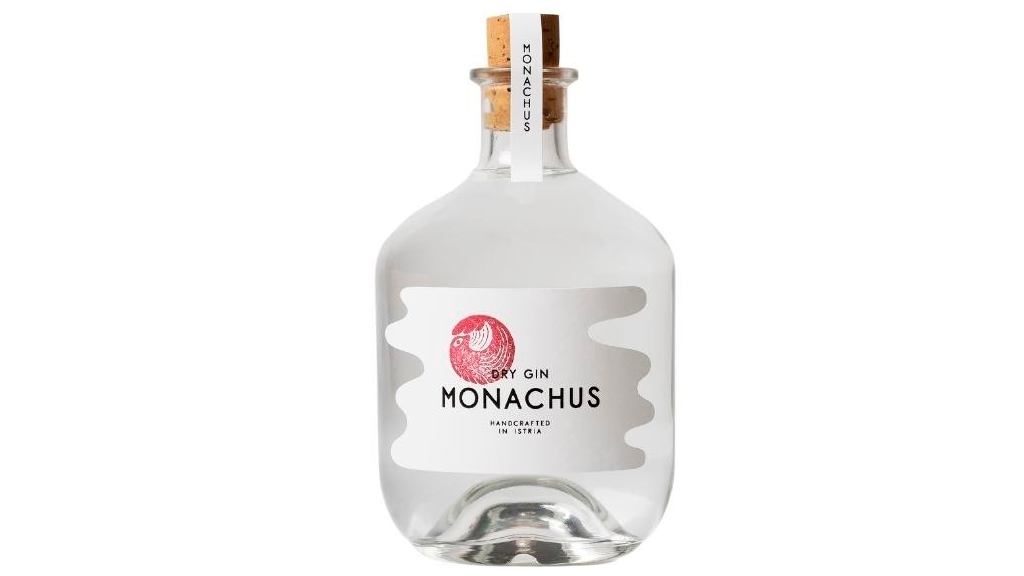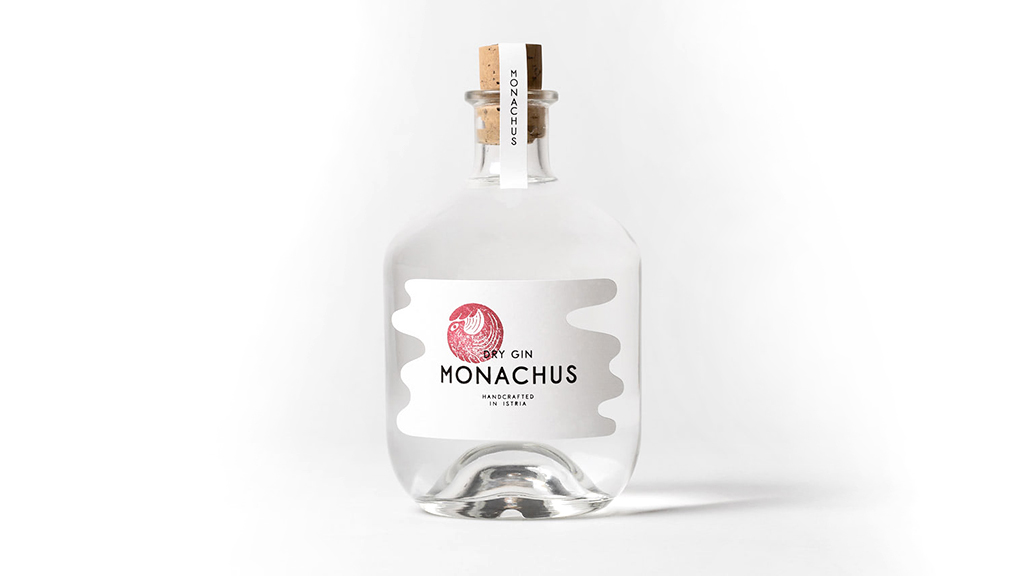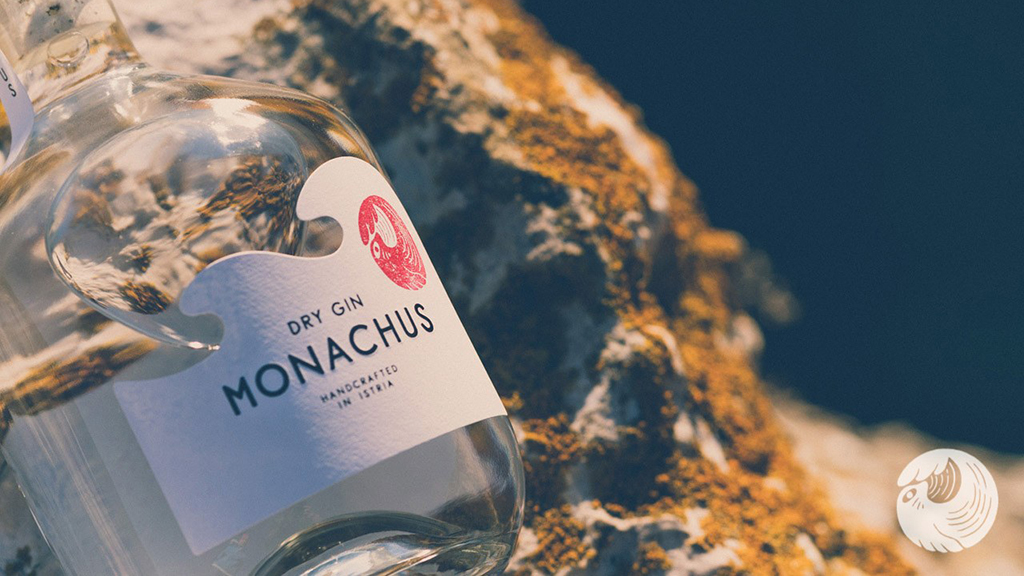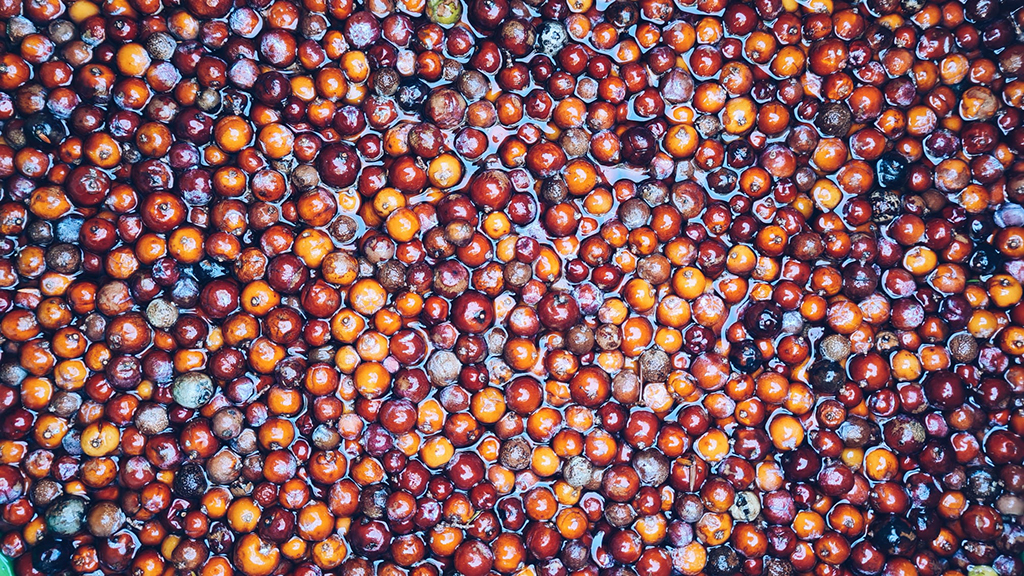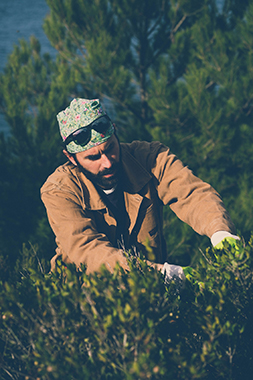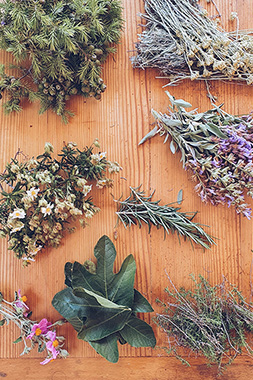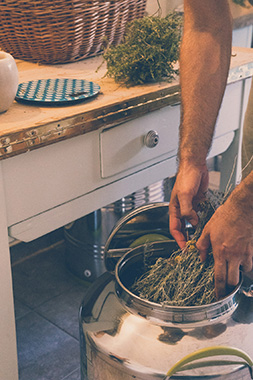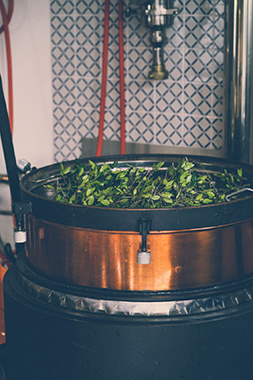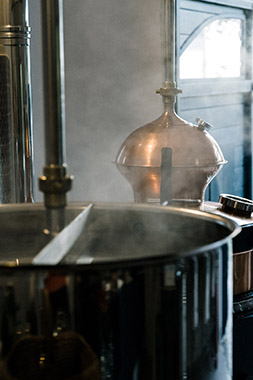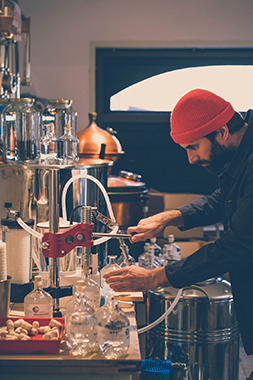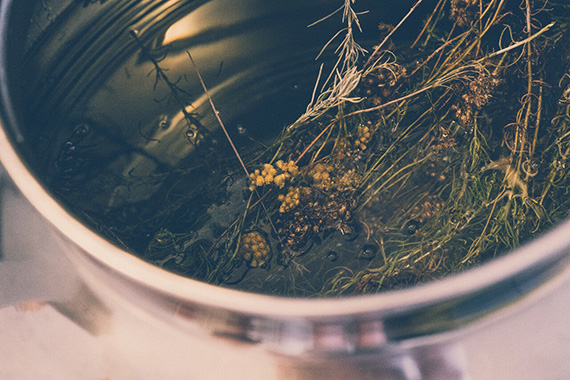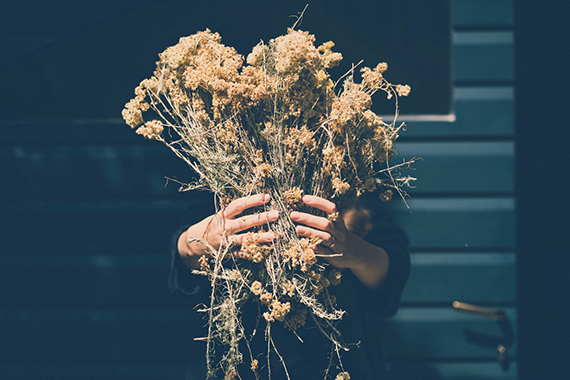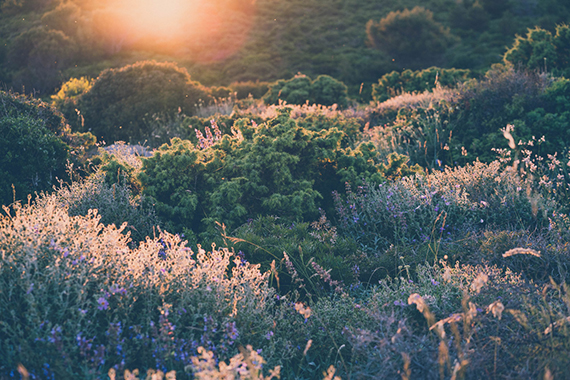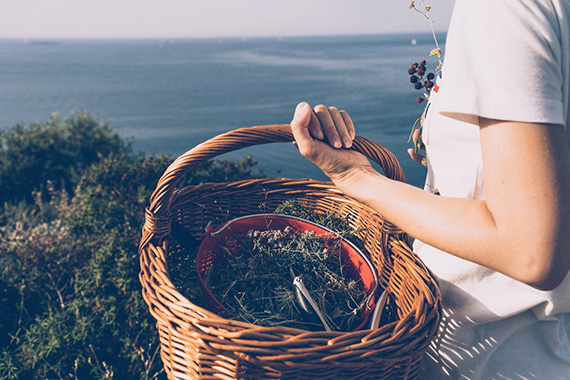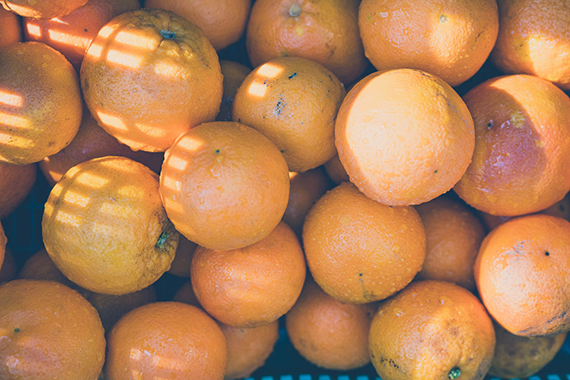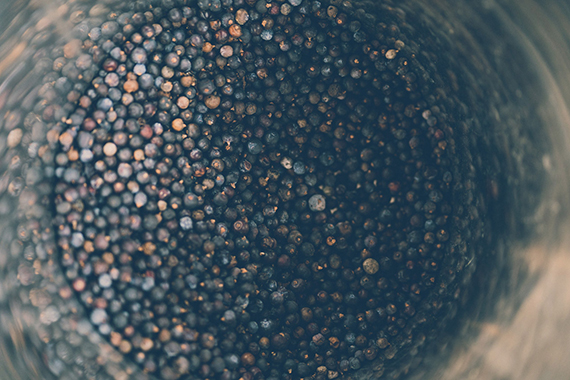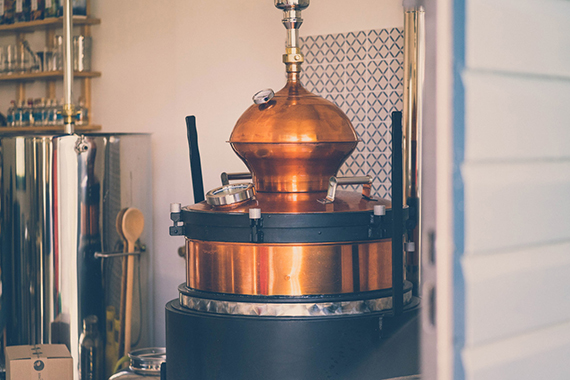Dry Gin, Monachus
The idea for this gin came from smells that fill the air by the coast of Cape Kamenjak, a protected landscape very close to our distillery, in the summer. We wanted to create a scent that evokes a walk down this coast- a mix of juniper, figs, and immortelle, the plants that grow wild by the sides of the roads, and in between the rocks.
Capacity (L):
0,5
About Monachus Gin
Monachus Dry Gin, eleventh batch.
Alc.vol.: 44%
Ingredients: juniper, coriander seeds, mandarine peel, immortelle, fig leaves
To the nose, juniper and fresh mandarine notes come forward, followed by floral notes of immortelle, and herbal, woody notes of the fig leaves. Almost the same happens on the palate, with the freshness of the citrus and coriander and resin-flavour of the juniper, accompanied by the sweetness of fig leaves, and herbal, floral notes of immortelle left in the aftertaste.
Monachus used handpicked Istrian juniper berries, biological mandarine peel from the Neretva valley in the south of Croatia, biological Italian coriander seeds, and immortelle and fig leaves handpicked in Istria. Citrus peel and the herbs that we use are fresh, as opposed to widely used dried botanicals, giving this gin exceptional freshness and an explosion of flavours, so true to the original flavours of these herbs and citrus.
The labels come in four shapes as symbols of the environment: a wave, a salt crystal, a northern wind ("bura" in Croatian, omnipresent in Premantura), and a pine cone. Monachus symbol is hand-printed on each label, thus the slight variations in colour and position.
About Monachus Distillery
Monachus was founded as a channel of expression for passion and interest in flavours and aromas, the specific natural environment of the Istrian peninsula, and sustainability.
Only a year after launching their first product- Monachus Dry Gin in the wake of the global pandemic in February 2020, they had their first export, and that to Japan in February 2021. The second shipment to Japan followed in November 2021, and Monachus distillates appeared on the menus of bars all around Japan, among which two are listed on the World's and Asia's 50 Best Bars. In 2022, they started exporting to Slovenia, and Monachus is being recognized by some of the best restaurants in Croatia and its surroundings. All of it is from their former garage in Premantura.
But let's rewind to the beginning when driven by curiosity, they travelled to some of the best European distilleries, from the big, renowned producers, to small family farms- tasting the finest of the European fruit brandy production and spirits obtained by maceration and distillation of herbs, flowers, and nuts (all of it spiced with the gin craze in the last 10 years). Educating themselves on the matter of fermentation and distilling, ingredients and flavours through books; going foraging, experimental fermenting, and distilling in a petit still that they ordered from a second-generation blacksmith near Zagreb, all led to packing their bags to Japan to learn hands-on about working with herbs, fruit, and alcohol to extract and capture the flavours at the Mitosaya Botanical Distillery in Chiba Prefecture near Tokyo.
Mitosaya is one of the fastest-growing Japanese craft distillery brands, where Yuko Yamamoto and Hiroshi Eguchi stand for botanical discoveries and perpetual experiments with Japanese fruit and herbs. From them, Monachus draw inspiration and knowledge to work with citruses, uses fresh instead of dried herbs in the production, and always makes time for new ideas.
Monachus focuses on working with local, certified organic or low-intervention fruit and wild herbs, experimenting with fermentations and flavours, getting to know all the suppliers, and knowing exactly which orchard fruit is coming from. The human touch in production and transparent ingredient sourcing has been one of their core values from day one. Monachus flavour experiments often include the use of citruses and coffee, whose use has become their signature already. Fermenting citruses is an endeavour that not many distilleries embark on, as the yield is low. In their small, experimental production, Monachus value refined products from the best possible ingredients far more than the mere quantity.
Monachus avoids following the established rules of the industry, as they were always more interested in gastronomy and fair production than spirits competitions. What they define as a real success of their products is the fact that people want to drink and enjoy them, chefs want to have them on their beverage lists, and mixologists want to create flavour combinations with them. And that's what matters.
